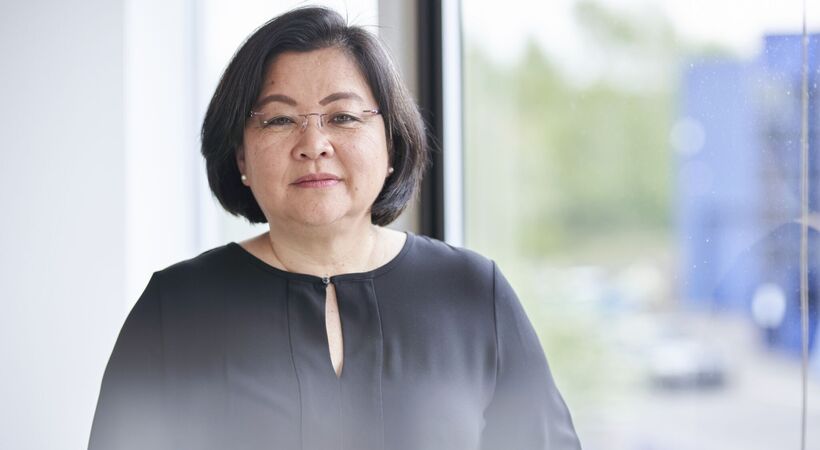Maria Shiao, chief sales officer at Fotech, a bp Launchpad company, believes engineering is one of the most enabling professions. Maria discusses her experiences to date, what it means to be a female engineer and what can be done to encourage more women into the field.
In Spain, where I grew up, and in many other European countries such as Italy, France and Germany, engineers are highly regarded; it is a very esteemed profession, much like a doctor. This is one of the main reasons engineering appealed to me as a career. I was also inspired by my uncle, who was a qualified engineer working in the semiconductor industry in the US. Following in his footsteps, I embarked on studying for a BS (Honors) in Electrical Engineering at Columbia University, New York, before going on to complete a MS in Electronics at Télécom Paris.
My initial fascination was in electronics, especially microchips and programming, and this grew into a wider passion for telecoms, and later, power grids, renewables and the smart energy and sustainability sector. The chip-to-grid journey is extremely critical if we are going to reduce our environmental footprint.
Fostering innovation
It is an exciting time to be involved in engineering. Since cities are responsible for approximately 70% of global energy demand and 71% to 76% of the energy related CO2 emissions, the built environment is at the forefront of sustainability. Engineers have real opportunity to make a difference to the future in designing systems for best managing assets and energy consumption, for example, and this is a challenge that really thrills me.
I believe women bring a unique perspective here. As well as bringing a different mind-set, women tend to naturally have the soft skills that engineering needs as a profession to advance, and to solve today’s problems. Women are typically excellent communicators and collaborators, working well in bringing teams together to find solutions.
Encouraging the next generation
So, that begs the question, what can we do to encourage more women into engineering? While there are certainly more females joining the profession now compared to when I first entered, I believe it will take a whole generation for the male / female ratio to become more balanced. There are two important factors the industry must take into account to nurture this growth. First, we need to encourage STEM subjects from a young age and second, we must retain talent in the profession.
Encouraging girls to take up STEM subjects is vital but it is no easy feat. However, it is not solely down to teachers encouraging children in schools, it is also about educating parents about the part they play. Too many times I have heard a mother say, “I am rubbish at maths”. This has a huge impact on girls, who then grow up to believe they can’t be good at it either.
I am hopeful that in the future the gender difference will change. Indeed, professional societies, such as the IET, are very aware of the imbalance, and actively run campaigns and programmes to raise awareness of women in engineering. For example, the Institution of Engineering & Technology (IET) hosts the Young Women Engineer of the Year awards to honour the very best early-career female engineers and apprentices working in the UK today. By highlighting their success, we can showcase the wide-variety of exciting opportunities that exist.
There are also return-to-work schemes sponsored by large engineering companies. I am confident that the flexibility new, modern technologies afford will be a game changer for women. As demonstrated by pandemic events of the last year and the shift in working environments, it is now easier than ever before for engineers to work remotely, giving them the means to balance work and home life more simply.
No limits
Engineering is also an incredibly broad discipline and there are many opportunities for women across many fields. The possibilities really are endless. I believe it is one of the most enabling professions you can have and there is seemingly no limit as to what can be achieved. When I first started out on this path, microchips were designed in micron sizes, but now we’re in nanometers, and quantum computing is emerging – that's quite a feat.
Being an engineer has allowed me to work at the leading edge of technology and I am excited by what the future holds for sustainable cities, and how this will open more opportunities for female engineers in particular.





